
Murcia: The Jewel of Southeastern Spain
Nestled in the southeastern part of Spain, Murcia is a city that offers a blend of rich history, vibrant culture, and stunning landscapes. Known for its baroque architecture and lively festivals, Murcia stands as a testament to Spain's diverse heritage. The city's historic center is a maze of narrow streets, where every turn reveals a new surprise, from the grand Cathedral of Murcia to charming plazas filled with locals enjoying tapas. Murcia is also renowned for its lush gardens and the Segura River that winds through the city, providing a picturesque backdrop for leisurely strolls. The city is a haven for food lovers, with a culinary scene that celebrates fresh, local produce and traditional Spanish dishes. Don't miss the chance to try the region's famous Calasparra rice or a hearty plate of zarangollo. Beyond its urban appeal, Murcia is surrounded by natural beauty. The nearby Sierra Espuña offers hiking opportunities with breathtaking views, and the coastline of Costa Cálida boasts beautiful beaches perfect for a day trip. Whether you're a history buff, a foodie, or an outdoor enthusiast, Murcia has something to enchant every visitor.
Local tips in Murcia
- Visit the Cathedral of Murcia early in the morning to avoid crowds and enjoy the intricate details of its baroque facade.
- Take a stroll along the Segura River at sunset for a serene and picturesque experience.
- Explore the local markets like Mercado de Verónicas for fresh produce and authentic Murcian delicacies.
- If you love hiking, make sure to visit Sierra Espuña for stunning trails and panoramic views of the region.
- Try local dishes like zarangollo and paparajotes to get a taste of traditional Murcian cuisine.
- Check the festival calendar before your visit; Murcia hosts several vibrant festivals, including the famous Spring Festival.
Murcia: The Jewel of Southeastern Spain
Nestled in the southeastern part of Spain, Murcia is a city that offers a blend of rich history, vibrant culture, and stunning landscapes. Known for its baroque architecture and lively festivals, Murcia stands as a testament to Spain's diverse heritage. The city's historic center is a maze of narrow streets, where every turn reveals a new surprise, from the grand Cathedral of Murcia to charming plazas filled with locals enjoying tapas. Murcia is also renowned for its lush gardens and the Segura River that winds through the city, providing a picturesque backdrop for leisurely strolls. The city is a haven for food lovers, with a culinary scene that celebrates fresh, local produce and traditional Spanish dishes. Don't miss the chance to try the region's famous Calasparra rice or a hearty plate of zarangollo. Beyond its urban appeal, Murcia is surrounded by natural beauty. The nearby Sierra Espuña offers hiking opportunities with breathtaking views, and the coastline of Costa Cálida boasts beautiful beaches perfect for a day trip. Whether you're a history buff, a foodie, or an outdoor enthusiast, Murcia has something to enchant every visitor.
When is the best time to go to Murcia?
Iconic landmarks you can’t miss
Catedral de Murcia
Explore the stunning Catedral de Murcia, a masterful blend of Gothic and Baroque architecture steeped in history, located in the vibrant heart of Murcia.
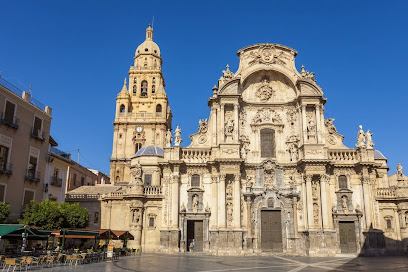
Plaza de Las Flores
Discover the vibrant Plaza de Las Flores, a historical landmark in the heart of Murcia, where culture, cuisine, and community come alive.
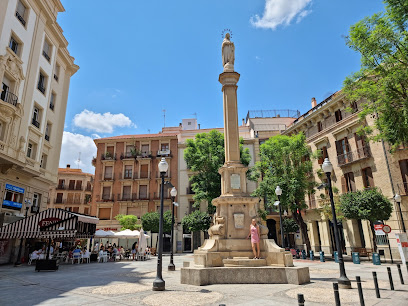
Real Casino de Murcia
Explore the majestic Real Casino de Murcia, a historic architectural wonder and cultural hub in the heart of Murcia, Spain.
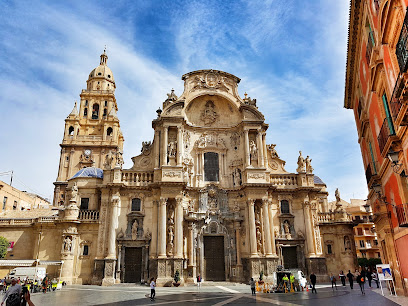
Jardín de Floridablanca
Explore the lush beauty and tranquil ambiance of Jardín de Floridablanca, Murcia's oldest garden, perfect for a serene escape in the heart of the city.
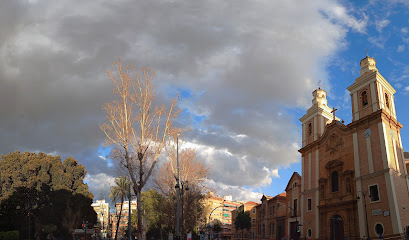
Circular Square
Discover the serene beauty of Circular Square, a lush garden oasis in the heart of Murcia, perfect for relaxation and leisurely strolls.
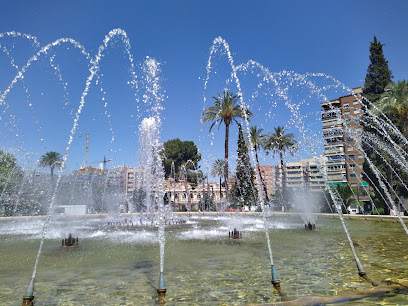
Puente de los Peligros
Explore the iconic Puente de los Peligros in Murcia, a stunning bridge connecting history and beauty with breathtaking views and local charm.
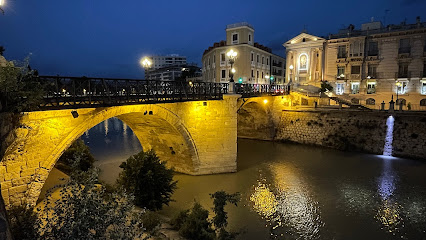
Glorieta de España
Experience the lush beauty and architectural charm of Glorieta de España, a serene garden oasis in the heart of Murcia, Spain.
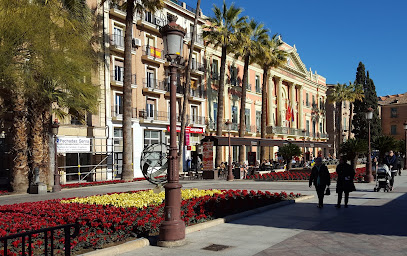
Teatro Circo Murcia
Discover the rich cultural heritage of Murcia at Teatro Circo, a historic performing arts theater offering captivating performances and an enchanting atmosphere.
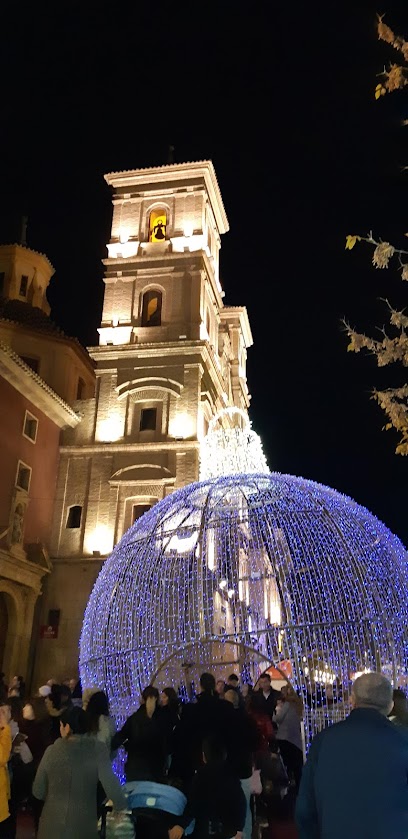
Paseo del Malecón
Discover the tranquil beauty of Paseo del Malecón, a serene park in Murcia offering stunning river views and cultural experiences for every traveler.
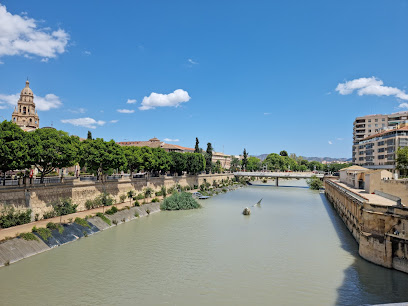
FICA Murcia
Discover the cultural heartbeat of Murcia at FICA, a premier event venue offering diverse experiences from art exhibitions to community gatherings.
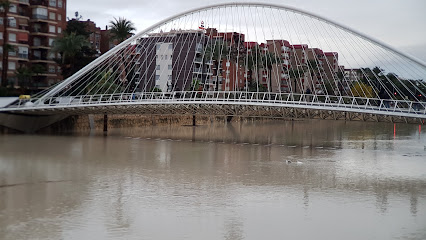
Museo Salzillo
Explore the captivating world of Francisco Salzillo at Museo Salzillo, a must-visit sculpture museum in the heart of Murcia, Spain.
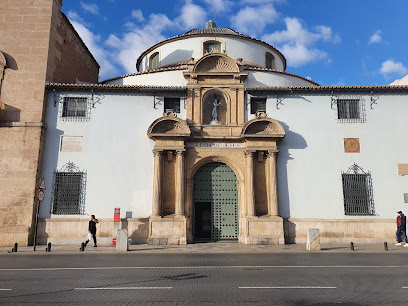
Museo Arqueológico de Murcia (MAM)
Explore the rich history and art at the Museo Arqueológico de Murcia, a premier archaeological museum showcasing the cultural heritage of the region.
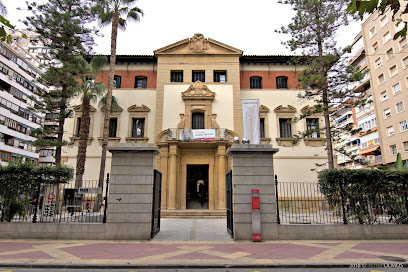
Cosa Fina GastroBar
Explore the vibrant flavors of Murcia at Cosa Fina GastroBar, where modern cuisine meets tradition in a charming atmosphere.
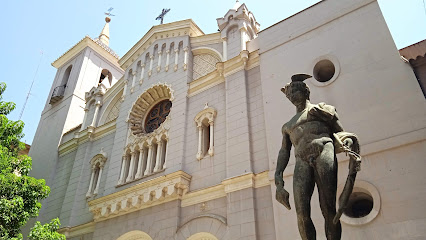
Museo de Santa Clara
Explore the captivating Museo de Santa Clara in Murcia, where art and history collide in a beautifully restored 14th-century convent.
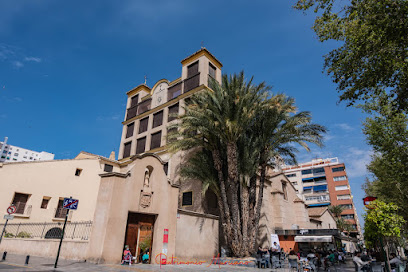
Museo de Bellas Artes de Murcia
Explore the rich artistic heritage at Museo de Bellas Artes de Murcia, showcasing masterpieces from the Renaissance to contemporary art in a stunning setting.
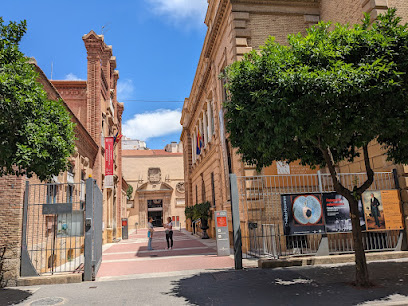
Unmissable attractions to see
Roman Theater of Cartagena
Explore the Roman Theater of Cartagena, a stunning historical landmark showcasing ancient Roman architecture and rich cultural heritage.
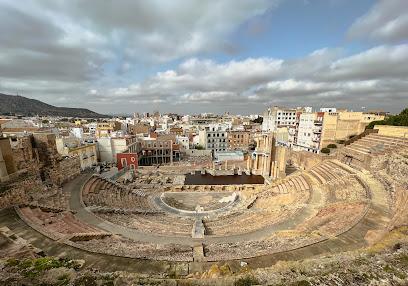
Catedral de Murcia
Experience the architectural wonder of Catedral de Murcia, a stunning blend of Gothic and Baroque styles in the heart of Spain's historical city.
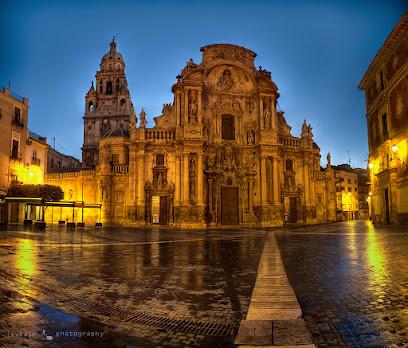
Huerto del Cura
Experience the serene beauty of Huerto del Cura, a stunning botanical garden in Elche, showcasing unique plant species and rich history.
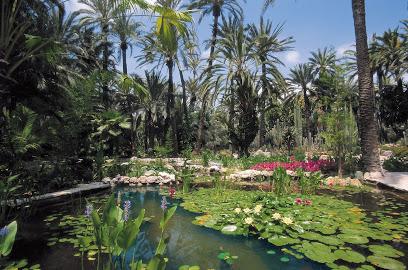
Plaza de Las Flores
Experience the vibrant beauty and rich culture of Plaza de Las Flores, the heart of Murcia, Spain, where history and local life bloom in harmony.
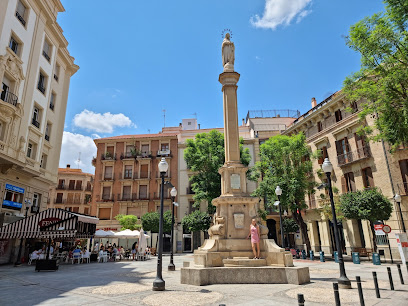
Terra Natura Murcia
Explore Terra Natura Murcia: A unique blend of zoo, water park, and lush park experiences for unforgettable family adventures.
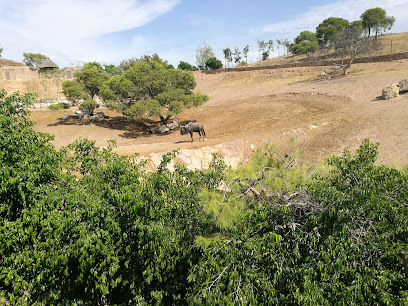
Santuario de Nuestra Señora de la Fuensanta
Explore the serene Santuario de Nuestra Señora de la Fuensanta, a stunning sanctuary in Murcia with breathtaking views and rich cultural heritage.
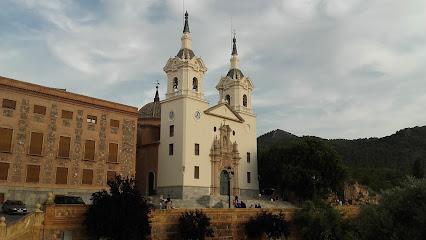
Real Casino de Murcia
Discover the architectural beauty and rich history of the Real Casino de Murcia, a must-visit museum and tourist attraction in Spain.
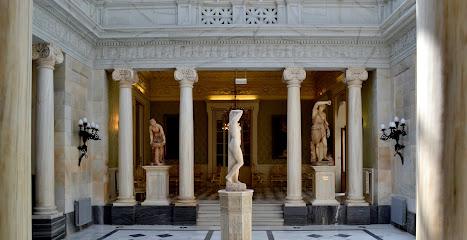
Jardín de Floridablanca
Explore the lush beauty of Jardín de Floridablanca, a historic garden in Murcia offering tranquility and natural charm.
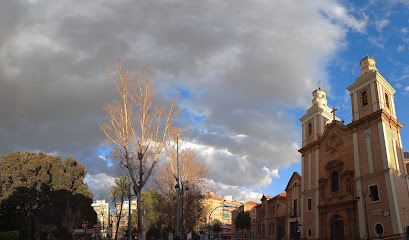
Basílica de Santa Maria
Discover the Basílica de Santa Maria in Elche, a stunning Gothic architectural marvel and a vibrant center of cultural and spiritual significance.
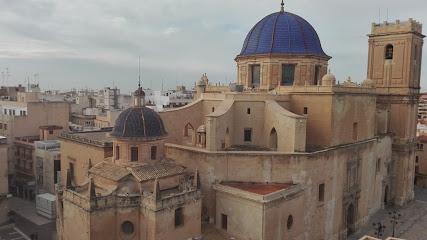
National Museum of Underwater Archaeology
Explore Cartagena's National Museum of Underwater Archaeology, where the mysteries of the ocean's past come to life through fascinating exhibits and artifacts.
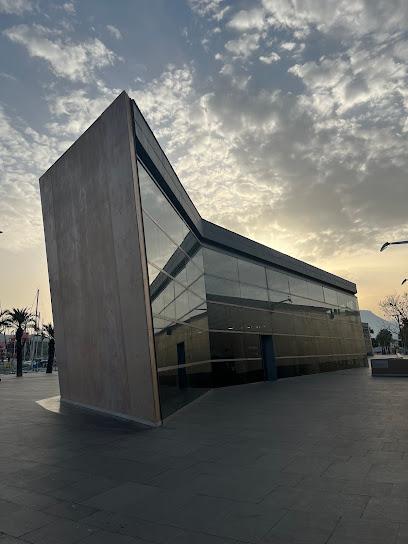
Cala Cortina
Discover the beauty of Cala Cortina, a stunning public beach in Cartagena, perfect for sunbathing, swimming, and enjoying local cuisine by the Mediterranean Sea.
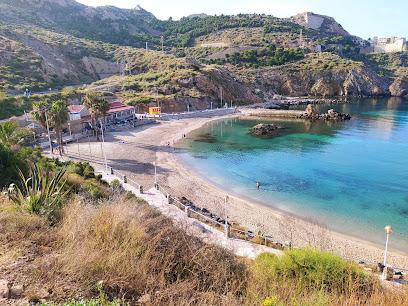
Naval Museum Cartagena
Explore Spain's naval history at the Naval Museum Cartagena, home to captivating exhibits and rich maritime artifacts in a stunning historic setting.
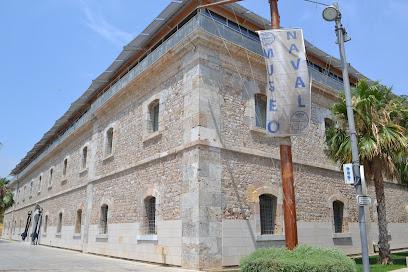
Puente de los Peligros
Explore the beauty and history of Puente de los Peligros, an iconic bridge in Murcia offering stunning views and a cultural experience.
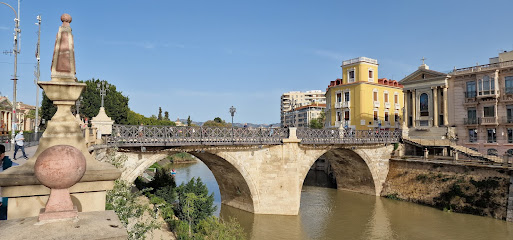
La Mata Beach
Explore La Mata Beach in Alicante - a breathtaking haven of sun, sand, and sea, perfect for relaxation, adventure, and unforgettable sunsets.
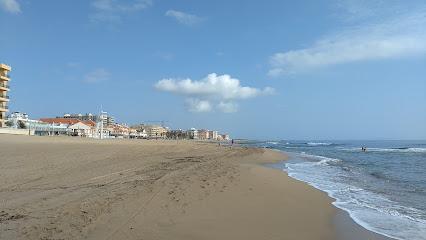
Jardín de la Seda
Discover the serene Jardín de la Seda in Murcia, a stunning park perfect for leisurely walks, picnics, and soaking in the beauty of nature.
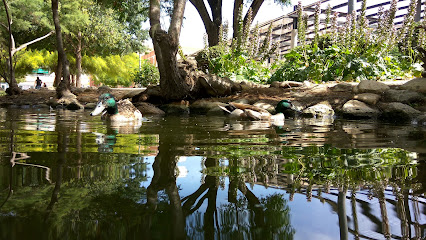
Essential places to dine
Pizzería Mano a Mano
Discover the rich flavors of Italy blended with Argentinian flair at Pizzería Mano a Mano in Murcia.
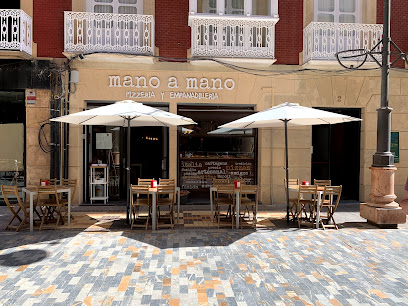
Restaurante Torremolinos
Discover the culinary wonders of Restaurante Torremolinos in Churra - where traditional flavors meet modern elegance.
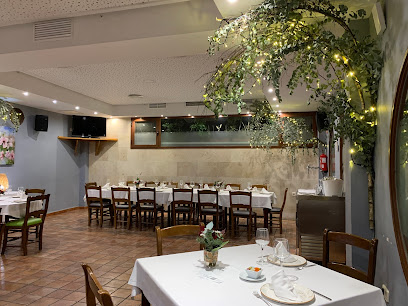
Restaurante La Pequeña Taberna
Experience authentic Mediterranean flavors at Restaurante La Pequeña Taberna in Murcia - where every dish tells a story.
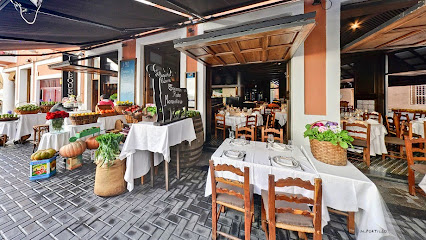
Restaurante El Churra
Discover the authentic taste of Mediterranean cuisine at Restaurante El Churra in the heart of Murcia.
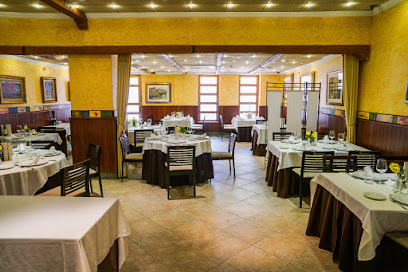
Los Navarros
Experience authentic Mediterranean flavors at Los Navarros - a must-visit restaurant in the heart of Murcia offering delicious dishes and warm hospitality.
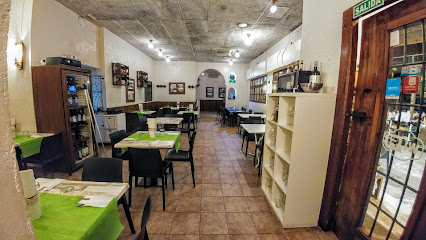
Restaurante Salzillo
Experience the essence of Mediterranean flavors at Restaurante Salzillo in Murcia – where tradition meets culinary excellence.
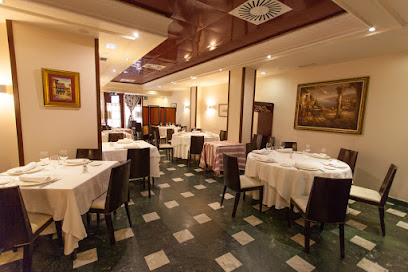
El Togo II
Experience the best tapas in Murcia at El Togo II – a culinary gem where tradition meets flavor.
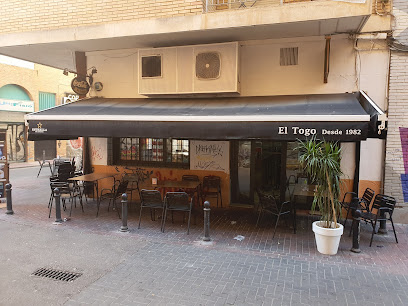
El Pilón de la Negra Murcia
Experience the vibrant flavors of Venezuela at El Pilón de la Negra in Murcia - where every dish tells a story.
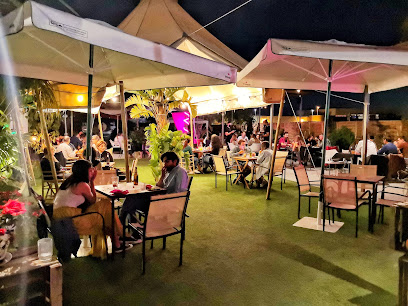
El Jumillano
Experience authentic Spanish cuisine at El Jumillano in Murcia – where vibrant tapas meet warm hospitality.
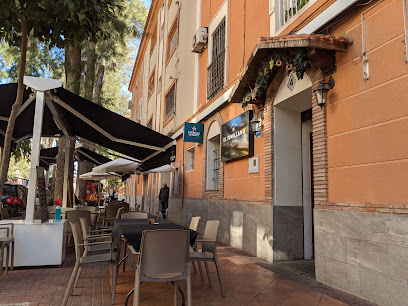
El Secreto
Experience authentic Spanish flavors at El Secreto, Murcia's beloved grill and tapas bar offering delightful dishes in a charming atmosphere.
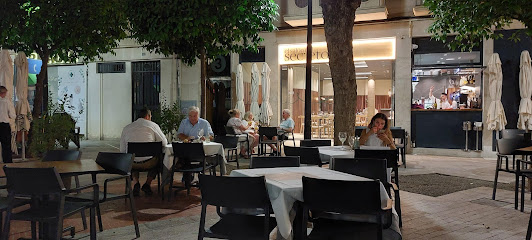
Las Mulas
Discover authentic tapas and vibrant atmosphere at Las Mulas in the heart of Murcia – a must-visit for food lovers.
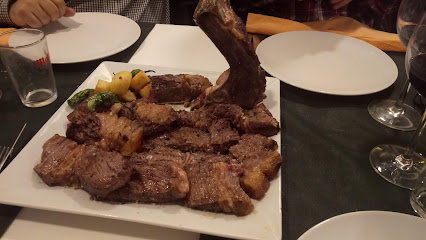
El Pasaje de Zabalburu
Savor the essence of Murcia at El Pasaje de Zabalburu – where every bite tells a story.
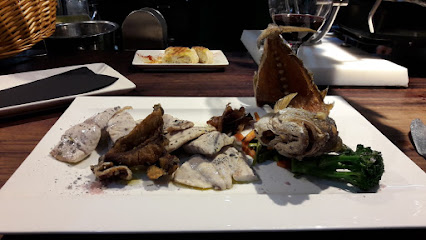
SteakBurger
Experience the ultimate burger paradise at SteakBurger in Murcia - where every bite is packed with flavor!
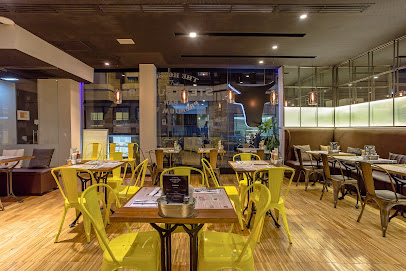
Cátame Despacito
Discover authentic Mediterranean flavors at Cátame Despacito in Murcia - A must-visit for food lovers seeking unforgettable Spanish cuisine.
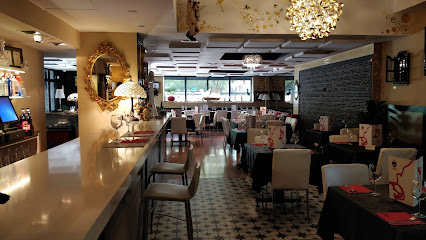
La Tapeoteca San Pedro
Experience authentic Spanish cuisine at La Tapeoteca San Pedro in Murcia, where every bite tells a story.
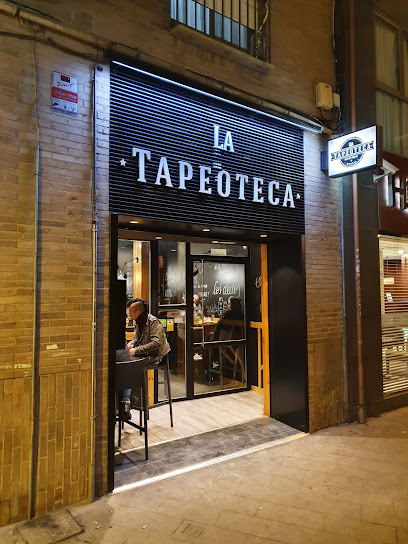
Markets, malls and hidden boutiques
Centro Comercial Nueva Condomina
Explore Centro Comercial Nueva Condomina in Murcia – your go-to destination for shopping, dining, and family fun, all under one roof.
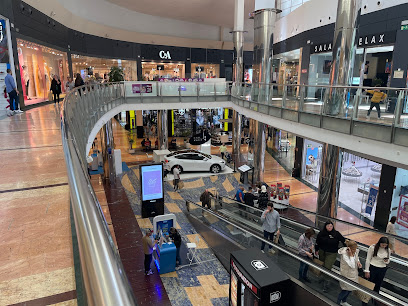
Centro Comercial Thader
Discover the ultimate shopping experience at Centro Comercial Thader in Murcia, where retail, dining, and entertainment come together.
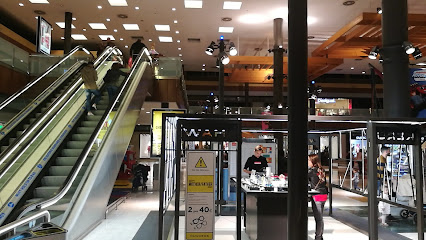
IKEA Murcia
Discover stylish home furnishings and innovative designs at IKEA Murcia, your ultimate shopping destination in the heart of Spain.
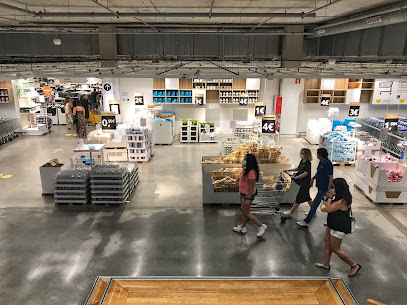
CC Espacio Mediterráneo
Discover a vibrant shopping experience at CC Espacio Mediterráneo in Cartagena, featuring diverse stores, dining, and entertainment options for all.
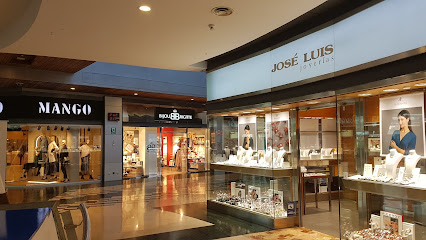
Centro Comercial Dos Mares
Explore the vibrant Centro Comercial Dos Mares in San Javier, Murcia, where shopping, dining, and entertainment come together for an unforgettable experience.
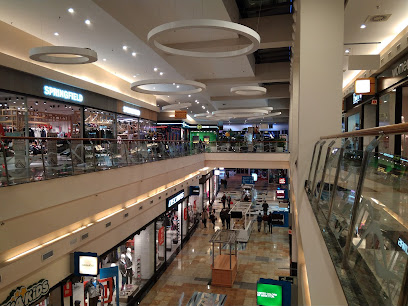
Centro Comercial Atalayas
Explore Centro Comercial Atalayas: Your Ultimate Shopping and Dining Experience in the Heart of Murcia, Spain.
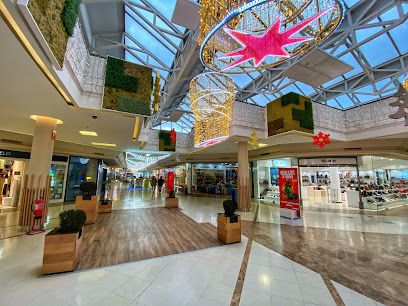
Primark
Explore trendy fashion at Primark in Murcia's Nueva Condomina with stylish clothes and unbeatable prices for all ages.
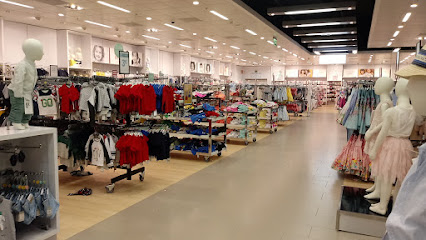
La Noria Outlet
Explore La Noria Outlet in Murcia, a shopper's paradise with unbeatable deals on your favorite brands and a delightful atmosphere.
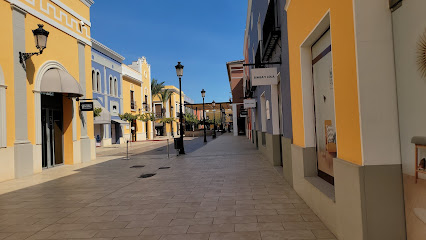
Centro Comercial Carrefour Zaraiche.
Explore Centro Comercial Carrefour Zaraiche, a vibrant shopping mall in Murcia with diverse stores, delicious eateries, and family-friendly entertainment options.
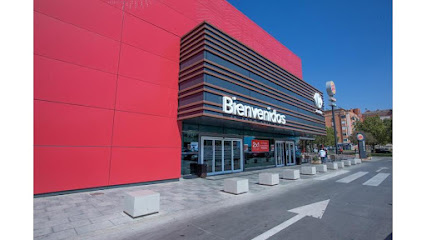
Museo Salzillo
Immerse yourself in the rich heritage of Spanish Baroque art at Museo Salzillo, home to the breathtaking sculptures of Francisco Salzillo.
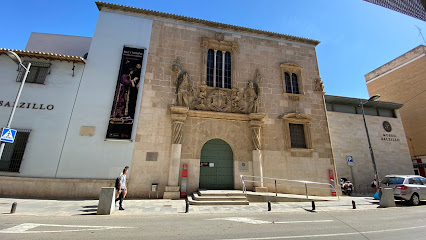
Cafetería Talula
Discover the heart of Murcia at Cafetería Talula, where exceptional coffee meets a warm, inviting atmosphere.
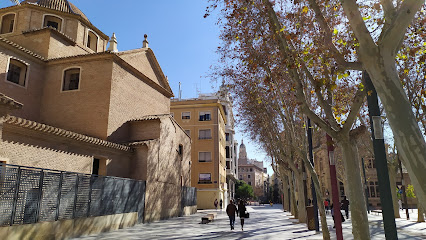
SEPHORA MURCIA
Explore the luxurious world of beauty at SEPHORA MURCIA, featuring high-end cosmetics, skincare, and signature fragrances for every beauty enthusiast.
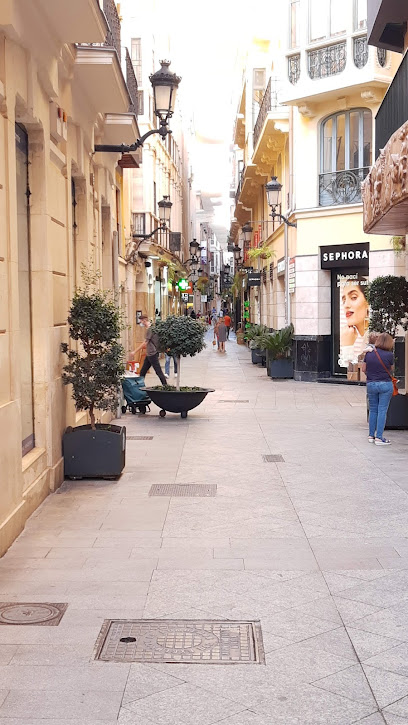
Valentina Brand Shop Murcia
Discover the latest fashion trends at Valentina Brand Shop, your ultimate destination for dresses, accessories, and stylish footwear in Murcia.
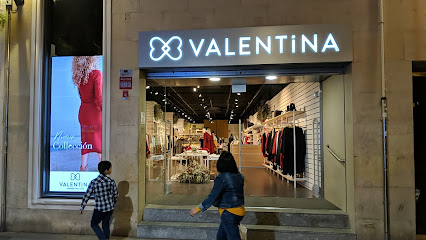
Murcia Vintage
Explore Murcia Vintage: Your Gateway to Unique Antiques and Timeless Treasures in the Heart of Murcia.
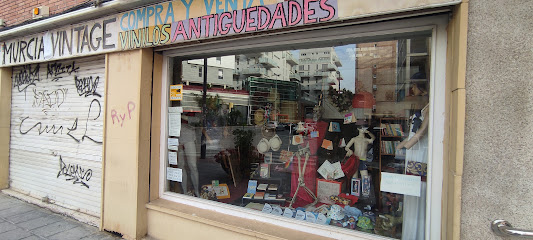
Gallery - Mi Tienda De Moda
Discover the latest fashion trends in dresses and men's clothing at Gallery - Mi Tienda De Moda in the heart of Murcia, your ultimate shopping destination.
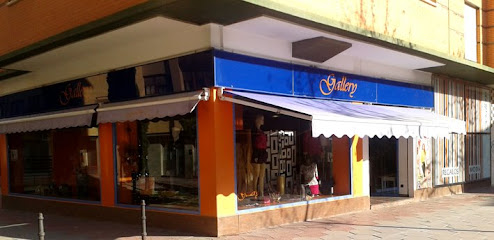
Essential bars & hidden hideouts
Alter Ego
Experience the vibrant nightlife of Murcia at Alter Ego, a pub offering an eclectic atmosphere, diverse drinks, and live entertainment.
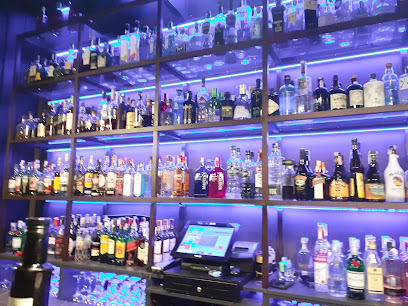
One Living Bar - Murcia
Discover the vibrant atmosphere of One Living Bar in Murcia, a lively pub offering great food, live music, and a fantastic nightlife experience.
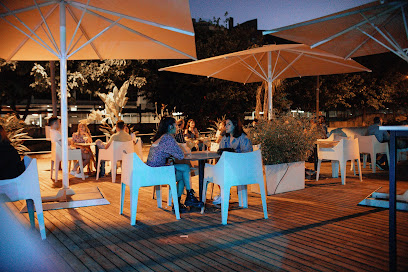
El Bosque Animado
Discover El Bosque Animado in Murcia, where vibrant nightlife meets unforgettable local culture, all at affordable prices.
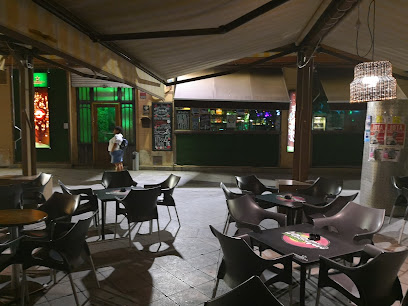
Fitzpatrick's irish pub Murcia
Experience the warmth of Ireland at Fitzpatrick's Irish Pub in Murcia, where traditional food, lively music, and a friendly atmosphere await.
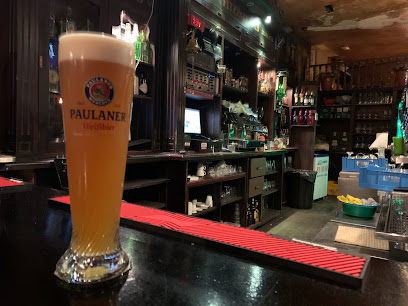
The Roneria and the Gintoneria
Experience the vibrant nightlife of Murcia at The Roneria and the Gintoneria, where a diverse cocktail menu awaits you in a lively pub atmosphere.
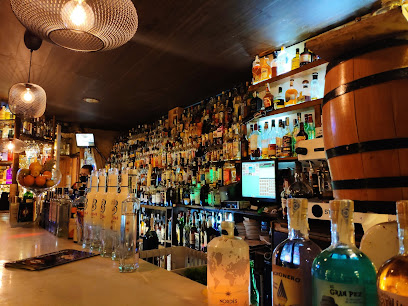
Foster's Club
Experience the vibrant nightlife and American dining at Foster's Club in the heart of Murcia, where great food meets a lively atmosphere.
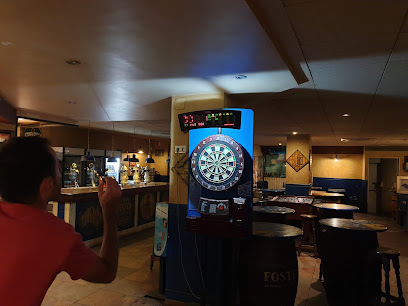
Corleone
Discover Corleone in Murcia, a lively pub blending cocktail elegance with enchanting piano melodies for a memorable night out.
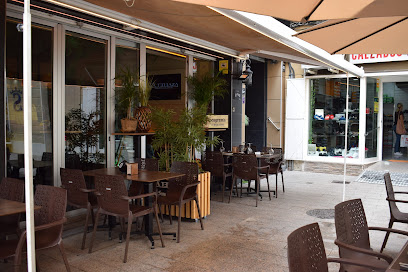
Plan 9
Discover the vibrant atmosphere of Plan 9, Murcia's premier piano bar, where live music and delightful drinks create unforgettable nights.
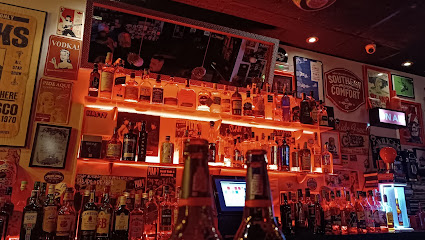
Kitsch
Discover Kitsch, the ultimate disco club in Murcia, where vibrant nightlife meets eclectic music and a welcoming atmosphere.
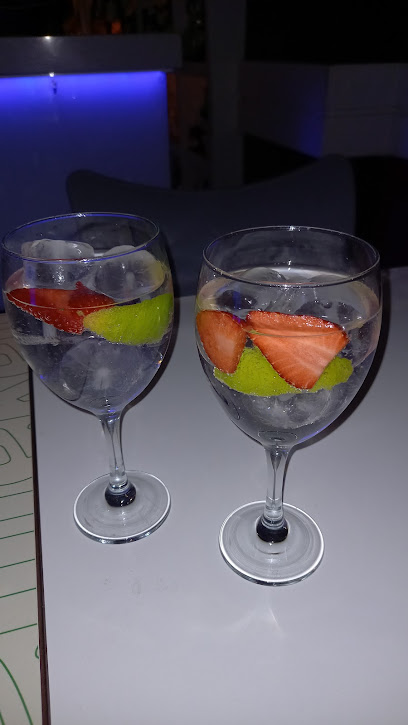
Pub Temperatura Ambiente
Explore the vibrant nightlife at Pub Temperatura Ambiente in Murcia, where cocktails, music, and fun unite for an unforgettable evening.
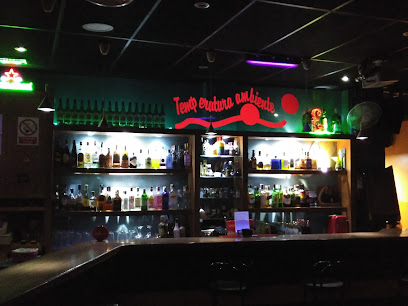
BadulaKe Bar Murcia
Discover the lively spirit of Murcia at BadulaKe Bar, a charming pub offering a delightful selection of drinks and a vibrant social atmosphere.
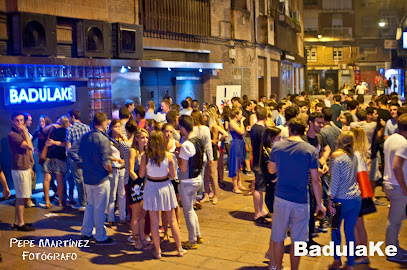
Contracorriente
Discover Contracorriente, a lively pub in Murcia offering a vibrant atmosphere and a taste of local nightlife with affordable drinks and friendly vibes.
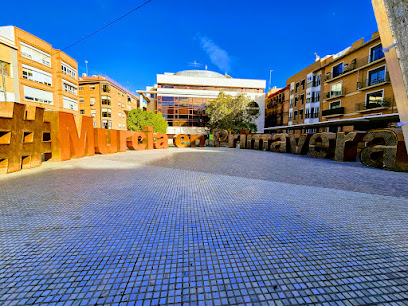
La Isla Beer Club
Discover La Isla Beer Club in Murcia, where craft beers meet a lively atmosphere for unforgettable nights out.
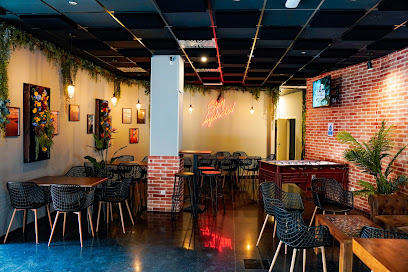
Pura Vida
Experience vibrant nightlife at Pura Vida, Murcia's premier cocktail bar, serving creative drinks in a stylish setting.
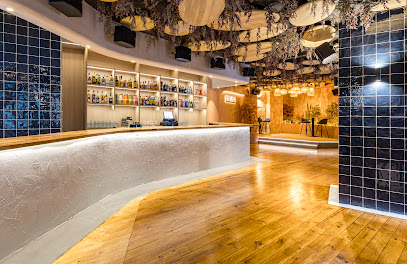
Local Phrases
-
- HelloHola
[O-la] - GoodbyeAdiós
[Ah-di-OS] - YesSí
[See] - NoNo
[No] - Please/You're welcomePor favor/De nada
[Por fa-VOR/De NA-da] - Thank youGracias
[Gra-thi-as] - Excuse me/SorryPerdón/Lo siento
[Per-DON/Lo see-EN-to] - How are you?¿Cómo estás?
[KOH-moh es-TAS] - Fine. And you?Bien. ¿Y tú?
[Bee-EN. EE too] - Do you speak English?¿Hablas inglés?
[AH-blas in-GLAES] - I don't understandNo entiendo
[No en-TIEN-do]
- HelloHola
-
- I'd like to see the menu, pleaseMe gustaría ver la carta, por favor
[Me gus-ta-REE-a ver la CAR-ta, por fa-VOR] - I don't eat meatNo como carne
[No KOM-o CAR-ne] - Cheers!¡Salud!
[SA-lud] - I would like to pay, pleaseMe gustaría pagar, por favor
[Me gus-ta-REE-a pa-GAR, por fa-VOR]
- I'd like to see the menu, pleaseMe gustaría ver la carta, por favor
-
- Help!¡Ayuda!
[AYU-da] - Go away!¡Vete!
[VE-te] - Call the Police!¡Llama a la Policía!
[YA-ma a la po-li-SIA] - Call a doctor!¡Llama a un médico!
[YA-ma a un ME-di-ko] - I'm lostEstoy perdido
[Es-TOY per-DEE-do] - I'm illEstoy enfermo
[Es-TOY en-FER-mo]
- Help!¡Ayuda!
-
- I'd like to buy...Me gustaría comprar...
[Me gus-ta-REE-a kom-PRAR] - I'm just lookingSolo estoy mirando
[SO-lo es-TOY mee-RAN-do] - How much is it?¿Cuánto cuesta?
[KWAN-to KWES-ta] - That's too expensiveEsto es demasiado caro
[ES-to es de-ma-SIA-do KA-ro] - Can you lower the price?¿Puedes bajar el precio?
[PWE-des ba-HAR el PRE-thio]
- I'd like to buy...Me gustaría comprar...
-
- What time is it?¿Qué hora es?
[KAY O-ra es] - It's one o'clockEs la una en punto
[Es la OO-na en PUN-to] - Half past (10)Las diez y media
[Las DYEZ ee ME-dia] - MorningMañana
[MA-nya-na] - AfternoonTarde
[TAR-de] - EveningNoche
[NO-che] - YesterdayAyer
[AY-er] - TodayHoy
[HOY] - TomorrowMañana
[MA-nya-na] - 1Uno
[OO-no] - 2Dos
[DOS] - 3Tres
[TRES] - 4Cuatro
[KWA-tro] - 5Cinco
[SIN-ko] - 6Seis
[SACE] - 7Siete
[SYE-te] - 8Ocho
[O-cho] - 9Nueve
[NWE-ve] - 10Diez
[DYEZ]
- What time is it?¿Qué hora es?
-
- Where's a/the...?¿Dónde está el/la...?
[DON-de es-TA el/la] - What's the address?¿Cuál es la dirección?
[KWA-les la dee-rek-SION] - Can you show me (on the map)?¿Puedes enseñarme (en el mapa)?
[PWE-des en-se-NAR-me (en el MA-pa)] - When's the next (bus)?¿Cuándo es el próximo (autobús)?
[KWAN-do es el pro-KSI-mo (au-to-BUS)] - A ticket (to ....)Un billete (a ...)
[Un bee-YET-te (a ...)]
- Where's a/the...?¿Dónde está el/la...?
History of Murcia
-
Murcia, located in the southeastern part of Spain, was founded by the Moors in AD 825. The city was named Mursiyah by Abd ar-Rahman II, the emir of Córdoba, and quickly became a significant center of commerce and agriculture due to its strategic location along the Segura River.
-
During the 11th century, following the collapse of the Caliphate of Córdoba, Murcia became the capital of an independent taifa kingdom. This period saw a flourishing of culture and science, with notable advancements in agriculture, particularly in the development of irrigation systems that are still in use today.
-
In the mid-13th century, Murcia was conquered by the Kingdom of Castile during the Reconquista. King Alfonso X of Castile took control of the city in 1243. Under Christian rule, Murcia saw significant changes, including the construction of the Cathedral of Murcia, which began in 1394 and took around 300 years to complete.
-
The early 18th century brought turmoil to Murcia due to the War of the Spanish Succession (1701-1714). The city was occupied by the forces of Archduke Charles of Austria before being recaptured by the supporters of Philip V. This period left a lasting impact on the city's architecture and urban layout.
-
The 19th century Industrial Revolution brought significant changes to Murcia. The city expanded rapidly, with new industries emerging, including silk production, which became a major economic driver. The introduction of railways further boosted Murcia's economy and connectivity with other parts of Spain.
-
Murcia, like much of Spain, was deeply affected by the Spanish Civil War (1936-1939). The city was a Republican stronghold and experienced significant social and economic upheaval during this period. Many historical buildings were damaged, but the post-war period saw efforts to restore and preserve Murcia's rich heritage.
-
In recent decades, Murcia has transformed into a vibrant, modern city while retaining its historical charm. The city is known for its lively festivals, such as the Spring Festival and the Bando de la Huerta, which celebrate Murcia's agricultural heritage. The University of Murcia, founded in 1272, remains a prominent educational institution, contributing to the city's cultural and intellectual life.
Murcia Essentials
-
Murcia is easily accessible by various means of transportation. The nearest international airport is Alicante-Elche Airport, located approximately 75 kilometers from Murcia. From the airport, you can take a bus, train, or taxi to reach the city. There are also direct train connections from major Spanish cities such as Madrid and Barcelona to Murcia's main train station, Murcia del Carmen. Additionally, the city is well-connected by road, with several major highways linking it to other parts of Spain.
-
Murcia offers a range of transportation options to help you navigate the city. The public bus system, operated by LAT, covers most areas and is an affordable way to get around. Taxis are also readily available and can be hailed on the street or booked via phone. For those preferring to drive, car rental services are available in the city. Murcia is also bike-friendly, with dedicated bike lanes and rental services. The city center is highly walkable, making it easy to explore on foot.
-
The official currency in Spain is the Euro (€). Credit and debit cards are widely accepted in most hotels, restaurants, and shops in Murcia. ATMs are plentiful throughout the city, allowing you to withdraw cash as needed. It is advisable to carry some cash for small purchases or in case you visit smaller establishments that may not accept cards. Contactless payments via mobile apps are also becoming increasingly popular.
-
Murcia is generally a safe city for tourists, but it is important to take standard precautions. Be aware of your surroundings and keep an eye on your belongings, especially in crowded areas like markets and public transport. Certain neighborhoods, such as Barrio del Carmen and La Fama, have higher crime rates, particularly for pickpocketing and minor thefts. Avoid walking alone at night in these areas. Emergency services can be reached by dialing 112.
-
In case of an emergency, dial 112 for immediate assistance. This number connects you to emergency services including police, fire brigade, and medical assistance. Murcia has several hospitals and clinics, including the University Hospital Virgen de la Arrixaca, which provides comprehensive medical services. Pharmacies, known locally as 'farmacias', are plentiful and can provide over-the-counter medications and advice for minor health issues.
-
Fashion: Do dress comfortably and modestly, especially when visiting religious sites. Avoid overly casual attire in finer dining establishments. Religion: Do respect local customs and traditions. When visiting churches, dress conservatively and remain quiet. Public Transport: Do be polite and offer your seat to the elderly or pregnant women. Don't eat or drink on public transport. Greetings: Do greet people with a handshake and a friendly 'Hola'. Eating & Drinking: Do try local delicacies such as tapas and paella. Don't rush your meal; dining is a leisurely affair in Spain.
-
To experience Murcia like a local, visit the bustling Mercado de Verónicas, where you can purchase fresh produce and local specialties. Spend a leisurely afternoon in one of the city's beautiful parks, such as Floridablanca or Malecón. Engage with locals at neighborhood bars and cafes; they are often eager to share recommendations and stories. Don’t miss the annual Feria de Murcia in September, a vibrant festival showcasing the region's culture, food, and traditions.
Trending Landmark in Murcia
-
Catedral de Murcia
-
Plaza de Las Flores
-
Real Casino de Murcia
-
Jardín de Floridablanca
-
Circular Square
-
Puente de los Peligros
-
Glorieta de España
-
Teatro Circo Murcia
-
Paseo del Malecón
-
FICA Murcia
-
Museo Salzillo
-
Museo Arqueológico de Murcia (MAM)
-
Cosa Fina GastroBar
-
Museo de Santa Clara
-
Museo de Bellas Artes de Murcia
Nearby Cities to Murcia
-
Things To Do in Alicante
-
Things To Do in Almeria
-
Things To Do in Valencia
-
Things To Do in Oran
-
Things To Do in Teruel
-
Things To Do in Málaga
-
Things To Do in Toledo
-
Things To Do in Tlemcen
-
Things To Do in Madrid
-
Things To Do in Palma de Mallorca
-
Things To Do in Oujda
-
Things To Do in Ronda
-
Things To Do in Algiers
-
Things To Do in Tarragona
-
Things To Do in Zaragoza













